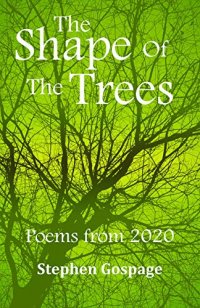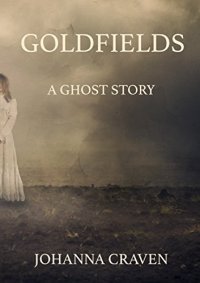The poems in Stephen Gospage’s book are about life and the coronavirus pandemic. There are also some poems on the sad, self-inflicted wound that was Brexit.
Coronavirus, in addition to its human tragedy and the heroic efforts of so many in combatting it, has inevitably resulted in more limited horizons for most people, in a year when many dreams and ambitions have had to be put on hold. Brexit represents the lowering of a nation’s aspirations. The title poem, The Shape of the Trees, hints at these more limited visions of the possible.
However, amid this disruption, life, in all its wonderful manifestations, still triumphed in 2020, and the ‘poems on life’ in the book, be they sad, funny, wistful or something else entirely, are intended to celebrate it. 2020 will never be ‘a year to remember’ but hopefully readers will find enjoyment in this book.
* Top 3 Amazon/Kindle/Poetry, February 2021
Free on 1st - 2nd Aug 23

Reviews:
" It points at all life's banalities and insanities, and somehow it never laughs."
Reviewer: RhymeHunter for Bookangel.
Before approaching the poems, I will mention upfront that Stephen Gospage's book of poems is let down by the formatting. While it has a table of contents, the individual poems are not linked to it, and it does not link to them or to the menu, making it of limited use. Initially each poem is on its own page with a bolded title, but this fails in places, like page 23 where a title for one poem is at the bottom of the page for the one before, or page 33's Christmas present which runs directly into the poem above. This happens in several places.
There are two sections here, poetry on life and on the pandemic. Treating the pandemic as a past event while it is yet ongoing strikes me as an odd choice, but one the author is free to make (e.g. complaining about sending "coughing migrants" back has not aged well). The life section includes poetry on Brexit and as Mr. Gosling is a dual British/Belgian citizen and spent his working life in Brussels, his views on that subject are not unexpected.
These poems are writing in short line, largely free form with occasional variable rhyming schemes, such as the Prisoner's verse using A,B,A,B,C,C,D,D or the Back Row's A,A,B,B,A,B,A,B. There's no consistent rhyming scheme, but the overall structure is similar for most. Some of the longer poems are broken into stanzas. This short line, sometimes rhyme, is used throughout, some with stanzas, some without, but there is a lack of the varied format that would truly show the poet's range.
My main problem is these poems are generally shallow. There's rarely depth or metaphor used, and the flow doesn't emphasis words to convey any particular tone. With certain others they make their point and overstay their welcome: the otherwise excellent Dreams adds little meaning in its sixth stanza for the sake of an easy pop reference.
Eternity, a three stanza work in strict couplets, shows some of this range. There are also some light-hearted poems in here: Creating the illusion of flight is a lighthearted work about optimism. Dead Actors covers the delights of dying on stage. In his social commentary work, he is at his best in shorter works: The Honours System poem hits hard with nothing more than the truth. Land of Opportunity is a four-line, forthright, slap at the level playing field.
The Pandemic section is stronger, perhaps because it focuses on shared experiences rather than individual issues.
This is one of those cases where the views of the works must be separated from the author because in all the collection, while they are sharp, sometimes, incisive, robust and dynamic they are never that rarest and most precious of qualities, kind. I think what puts me off is that there is so little joy in this. There is no wonder, no looking ahead. These are not cries for help or of despair, or explorations of the truth of life, but mockery and complacency with the way things are. It points at all life's banalities and insanities, and somehow it never laughs.
Finally certain factual inaccuracies are used for artistic effect, which is hardly unusual. For example his peon to the EU in 1979 states "there were no calls to arms, no drums of war", and then in page 142 states of Germany "would anyone want to go back to the chilling pre-1989 reality?". 1979 for historical accuracy was the year when NATO nearly went to war with Russia, a British MP was assassinated, and NATO's Supreme Commander was nearly assassinated by Communists in Belgium (we won't mention the Sino Vietnam war or the others already going on).
I can only say this is not to my taste. I leave with a parting thought from his "Depression" that, should you read 'her' for 'his', sums up my struggle to review:
"He grits his teeth and tries
His best, but finds he can't."
Rating: 3Quicklink to this review
Top - Reviews - Update Details
Third Party Reviews:
No reviews yet. Why not link one?
You can suggest a blog review here












